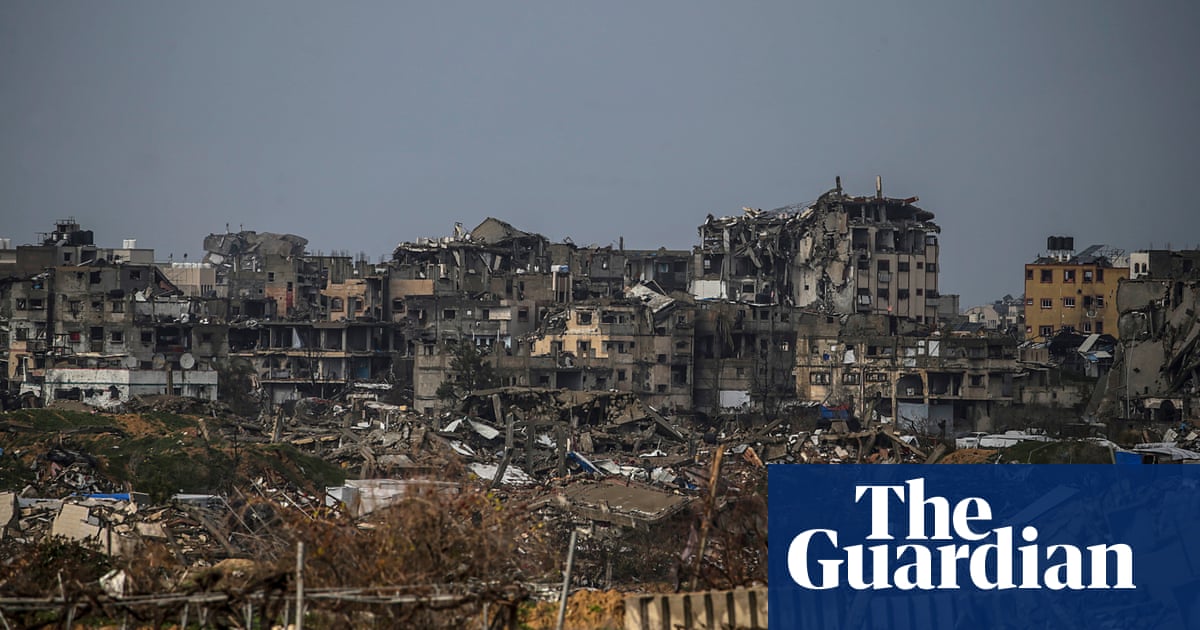Hamas is facing hard choices as the Israeli military bolsters troop numbers in and around the Gaza Strip and the three-week-old ceasefire falters.
The Palestinian militant group unexpectedly announced on Monday that it was postponing the next planned release of three Israeli hostages over the weekend, citing alleged Israeli violations of the truce: delaying the return of Palestinians to northern Gaza, blocking the arrival of aid and attacking civilians. It stressed, however, that it wants the ceasefire to continue, emphasising that mediators had five days before the handover to ensure Israel “complies and compensates for the past weeks”.
There are also two unspoken reasons for the Palestinian militant group’s decision.
Hamas officials are astute observers of Israeli politics and media; they took careful note of the furore caused by the emaciated condition of the three hostages released last weekend, which the hostage families forum likened to images of Holocaust survivors.
If the group is releasing the healthiest captives first, and the next to be freed are in even worse shape, Hamas commanders may be worried about pushing Israeli public opinion towards resuming hostilities in revenge for the treatment of the hostages.
Hamas is also just as vulnerable as the rest of the world to Donald Trump’s tendency to make up policy on the fly. The president’s ill-considered and sudden announcement last week that the US will take over and “develop” the Gaza Strip was met with international condemnation.
The militant group did not mention the Trump proposal in its statement on Monday, but the president has essentially already torpedoed the next two phases of the ceasefire agreement – an end to the war, and talks on future governance of the strip – leaving Hamas with dwindling options.
Trump’s response to the announced delay of the next hostage release raised the stakes even higher. In an attempt to back the group into a corner, he has now demanded that Hamas releases “all” of the remaining Israeli hostages on Saturday, although he has acknowledged that the decision ultimately lies with Israel. Israel’s prime minister, Benjamin Netanyahu, for his part, has deliberately fudged his position in order to keep his options open, and has not explicitly backed Trump’s most recent demand.
Hamas has dismissed Trump’s new deadline, saying that “the language of threats has no value and only complicates matters”, but the group now appears to have three courses of action.
It can cut its losses and carry out its threat to delay Saturday’s planned hostage release, which will mean a return to fighting. While resuming hostilities is likely to trigger another mass exodus of Palestinian civilians to southern Gaza and dramatically worsen the strip’s humanitarian crisis, this is a way for Hamas to save face without giving up any more hostages, which remain its main leverage over Israel.
It could also call Trump and Israel’s bluff by releasing more than three hostages. While it is logistically unlikely that the group could deliver all 76 – at least 30 of whom are dead – in one go, it could feasibly release the eight living captives due to come home in the first stage of the deal, in effect forcing talks to begin on implementing the second and third phases of the ceasefire ahead of schedule.
Hamas also knows that if it does deliver the three hostages scheduled for release on Saturday, as planned, Israel is unlikely to withdraw from the agreement. This route would keep the truce alive, and to some extent defang Trump’s threats – although the president is unlikely to suffer such humiliation lightly.
Which path the group will take will become clear on Friday night, when Hamas is supposed to deliver the names of the three hostages before their release. If they do not materialise, Israel will have ample justification to resume the war, with Trump’s blessing – an outcome that will let Netanyahu, the ultimate political Houdini, keep his rightwing coalition government intact.
The ceasefire in the Gaza Strip is hanging by a thread after just three weeks, which does not bode well for its future. More than 2 million people in Gaza, and hundreds of Israelis still desperate for captive loved ones to return, are holding their breath.
Article by:Source: Bethan McKernan in Jerusalem















